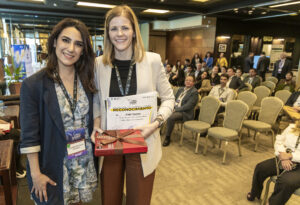How Certification Supports Responsible and Sustainable Renewables Growth
How Certification Supports Responsible and Sustainable Renewables Growth
As the global energy transition accelerates to achieve ambitious climate targets, the need for responsible and sustainable renewable energy development has never been greater. While the benefits of renewables in reducing carbon emissions are clear, the sector faces growing scrutiny over its broader environmental, social, and governance (ESG) impacts. Certification programs like the EO100™ Standard, offer a structured, transparent, and market-driven approach to ensuring that renewable energy projects are not only low-carbon but also socially and environmentally responsible.
Beyond Carbon: Addressing ESG Challenges in Renewables
The urgency of climate action has led to a remarkable increase of renewable energy projects worldwide, particularly in developing countries. However, a narrow focus on carbon reduction—often referred to as “carbon myopia”—has resulted in overlooking critical ESG considerations, including:
- Community Impacts & Social License to Operate – Developers increasingly face pressure to earn local acceptance and prevent costly project delays or cancellations.
- Supply Chain Risks – Issues like biodiversity loss, deforestation, and forced labor in solar panel supply chains demand greater transparency and accountability.
- Just Transition & Equitable Benefit Sharing – Affected communities require long-term planning, equitable economic opportunities, and stakeholder engagement to ensure a fair energy transition.
The EO100™ Standard was created to address these challenges, ensuring that renewable energy projects are developed responsibly and equitably.
A Proven Model for Sustainability Certification
Certification is a widely used and well-established tool in industries such as forestry, agriculture, and mining, helping to de-risk investments, accelerate deployment, and provide independent verification of ESG performance. The EO100™ Standard applies this approach to the renewable energy sector, creating measurable, transparent benchmarks for responsible development.
Key pillars of the EO100™ approach include:
- Standard Development – Engaging experts and stakeholders to identify key impacts, conduct public consultations, and develop sector-specific requirements.
- Implementation & Engagement – Supporting companies through gap analyses, training, and capacity building to drive continuous improvement.
- Assurance & Certification – Training and accrediting independent auditors, establishing rigorous evaluation procedures, and ensuring robust monitoring and verification.
- Market Mechanisms – Connecting certified projects with downstream energy buyers, enhancing the value proposition of sustainable energy.
EO100™: Setting the Benchmark for Energy Project Certification
Founded in Ecuador in collaboration with the Coordinator of Indigenous Organizations of the Amazon Basin (COICA) and the founder of the Forest Stewardship Council (FSC), EO100™ is the first and longest-standing certification system for energy projects. Its credibility is built on:
- Transparency – Publicly available standards developed through multi-stakeholder consultations, incorporating frameworks like the UN Guiding Principles on Business and Human Rights, Extractive Industries Transparency Initiative (EITI), and ISO 14001.
- Comprehensive ESG Scope – Covering ethical business practices, biodiversity, free, prior, and informed consent (FPIC), climate impacts, responsible supply chains, and post-closure obligations.
- Independent Assurance – Audits conducted by accredited assessment bodies with deep sector expertise.
- Proven Market Adoption – EO currently certifies over 15% of U.S. and Canadian natural gas production, totaling 15 million GJ/day (or over 4 GW/h).
Scaling Impact Through Certification
The demand for responsible renewables is growing. As the sector expands, certification provides a structured, credible mechanism to ensure ESG best practices, de-risk investments, and reward leadership in sustainability.
With the development of sector-specific supplements for wind and solar, EO100™ is driving the next frontier of responsible renewable energy certification, ensuring that clean energy not only reduces carbon emissions but also upholds the highest environmental and social standards.
The Path Forward
As more companies and investors recognize the importance of integrating ESG into renewable energy development, certification will play a pivotal role in setting industry benchmarks and fostering a truly sustainable energy transition.
If we are to meet ambitious climate targets while ensuring that communities, ecosystems, and workers are protected, the time to prioritize certification and responsible renewable energy development is now.
This article was authored by Kaki Comer, Standards Development Manager.
